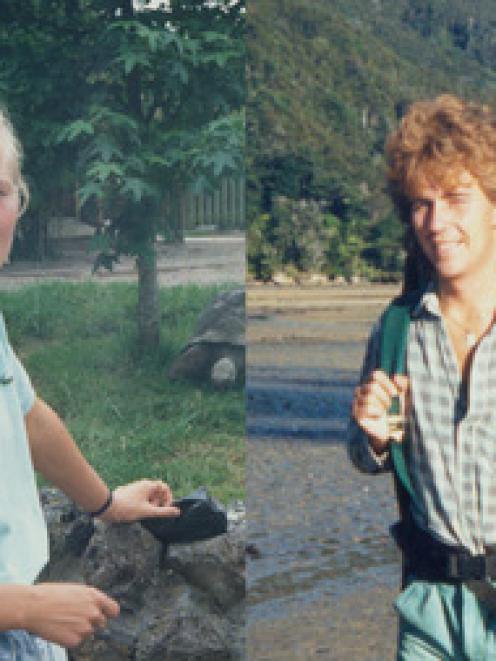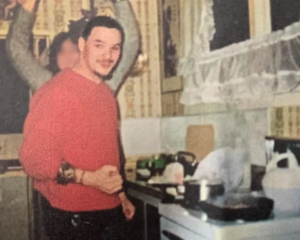
The man has been identified as Rotorua's Huia George Foley by a man who raised him.
The name was confirmed by author Ian Wishart as matching the suspect identified in his new book on the murders of Urban Hoglin and Heidi Paakkonen, Missing Pieces.
Foley was a mental health patient known to be violent and on the Coromandel Peninsula when the Swedish couple disappeared in April 1989.
His naming comes as a new witness emerges with an account of Ms Paakkonen being driven away, hands bound, by a man who looked similar to David Tamihere - later convicted of murdering the pair - but was not him.
Foley, described as looking similar to Tamihere, emerged as a suspect after Wishart followed up stories of an alleged confession by Foley to his mother before he died of renal failure in 2002.
A nurse who heard radio advertising for the book called to say a man answering Foley's description - he later lost an arm in a car crash - made a deathbed confession.
Andrew Rangiheuea, a Rotorua widower, said his family learned not to antagonise Foley during the time he lived with them. "He was a bully and he went mental."
Mr Rangiheuea said Foley had moved in as a child, growing into his teenage years.
He said he knew Foley's family and the boy attended Wesley College, near Pukekohe, with his own sons.
He said his wife, June, had confronted Foley about a woman he knew in the South Island who had disappeared. "She said, 'You killed this girl in the South Island'. He laughed and said, 'You can't prove it'."
Mr Rangiheuea said those who knew Foley also came to fear he was involved in the disappearance of a young woman who was hitchhiking in the Bay of Plenty in 1996.
He said police had been approached and told of the concerns Foley had been involved, although they would not be budged from the target of the inquiry.
"We all believed Huia could have been involved. If you could see his face with a beard on, he looked just like Tamihere. We always thought he was the one."
Mr Rangiheuea said he contacted the Herald after one of his children saw a story about a new suspect in the Missing Pieces book.
"I thought, 'Someone has got on to him at last'. He had a temper, a bad temper. We were cautious. He didn't show any signs of having a nature to kill anybody but he would hit people.
"To us, it was his attitude and what he believed. Everything he believed had to be right and everybody else was wrong."
Mr Rangiheuea said Foley was known to have travelled to Whitianga at the time the Swedish couple vanished. He said he recalled stories of a sleeping bag being left behind - a detail that matched Wishart's discovery that Foley left a German ex-military sleeping bag in Whitianga.
The emergence of Foley as a suspect also struck Remuera's Viv Wilson, who was convinced she saw Paakkonen while holidaying at Pauanui about the time she disappeared.
She said she saw a white Subaru a few weeks after Easter in 1989 cruising slowly along the street.
"I looked up and here was this panic-stricken girl who was obviously struggling to get the door open."
The way the blonde woman in the back of the car turned to the door with her whole body later convinced Mrs Wilson her hands were bound.
She raised her concerns at the time with a well-known Pauanui developer, creating a record which later gave her surety when the missing couple's pictures were published.
"The guy behind the wheel did look a bit like David Tamihere but he had longer hair. David Tamihere had a much neater cut."
There was nobody else in the car, Mrs Wilson recalled.
She then reported the sighting to police. "They seem to think my facts aren't correct. I'm thoroughly convinced it was her that I saw. It is one of those things which sticks with you for life.
"I felt police didn't have all the facts. Then, after Urban Hoglin's body was found, I thought it all ties in."
Police have pointed to court hearings that led to and upheld Tamihere's conviction.
- David Fisher












